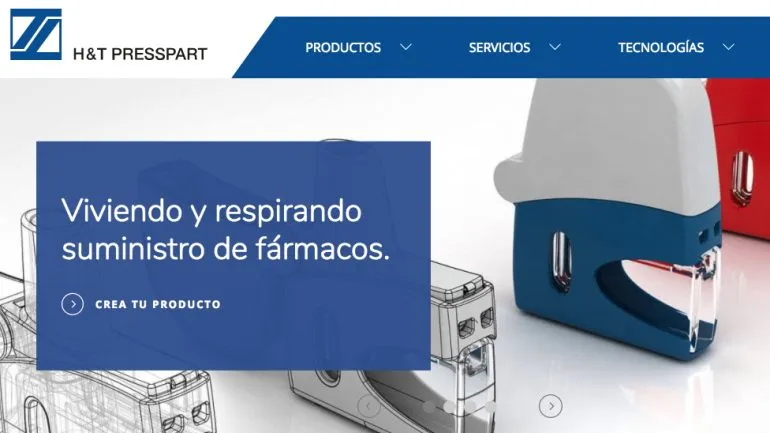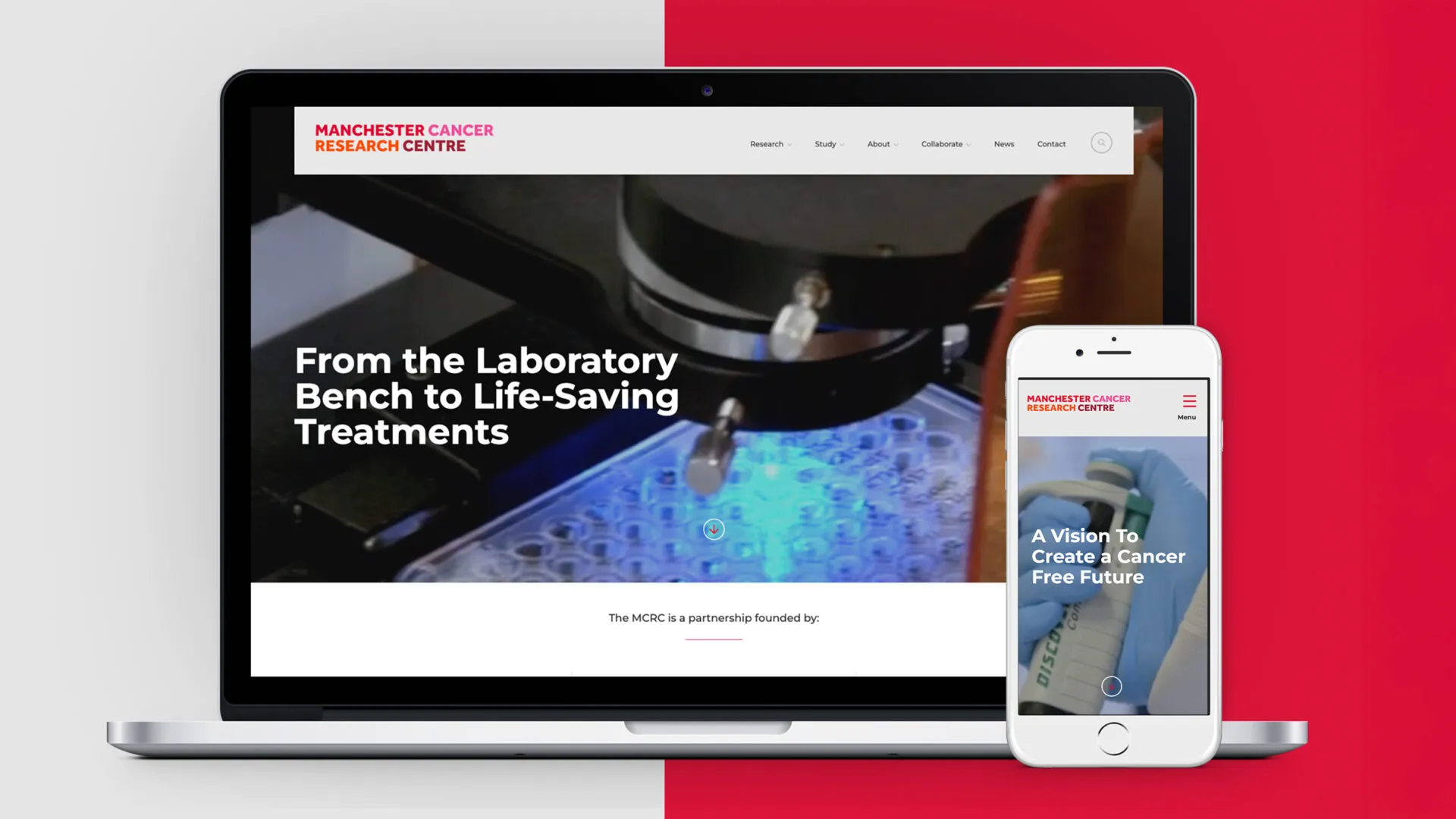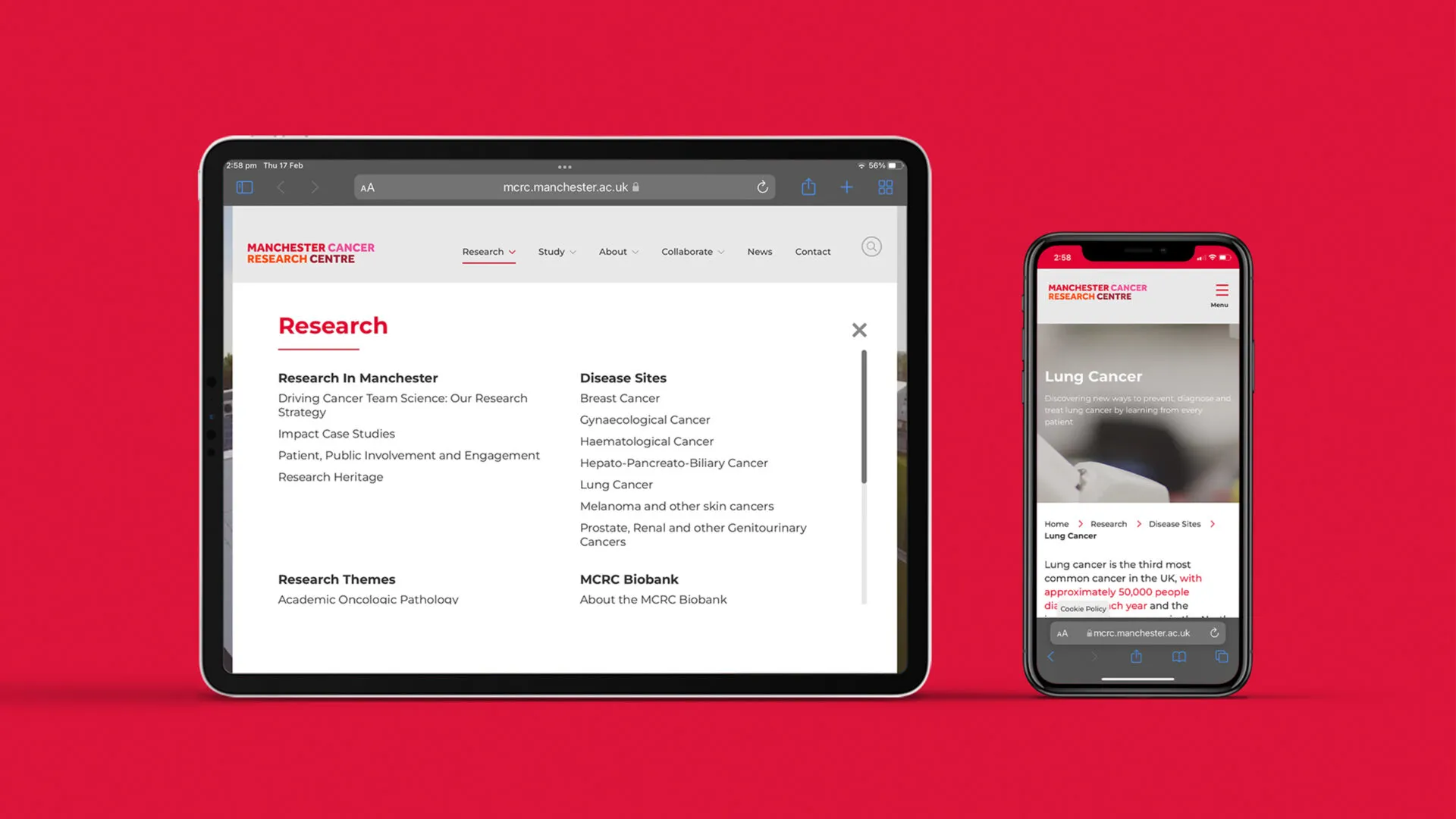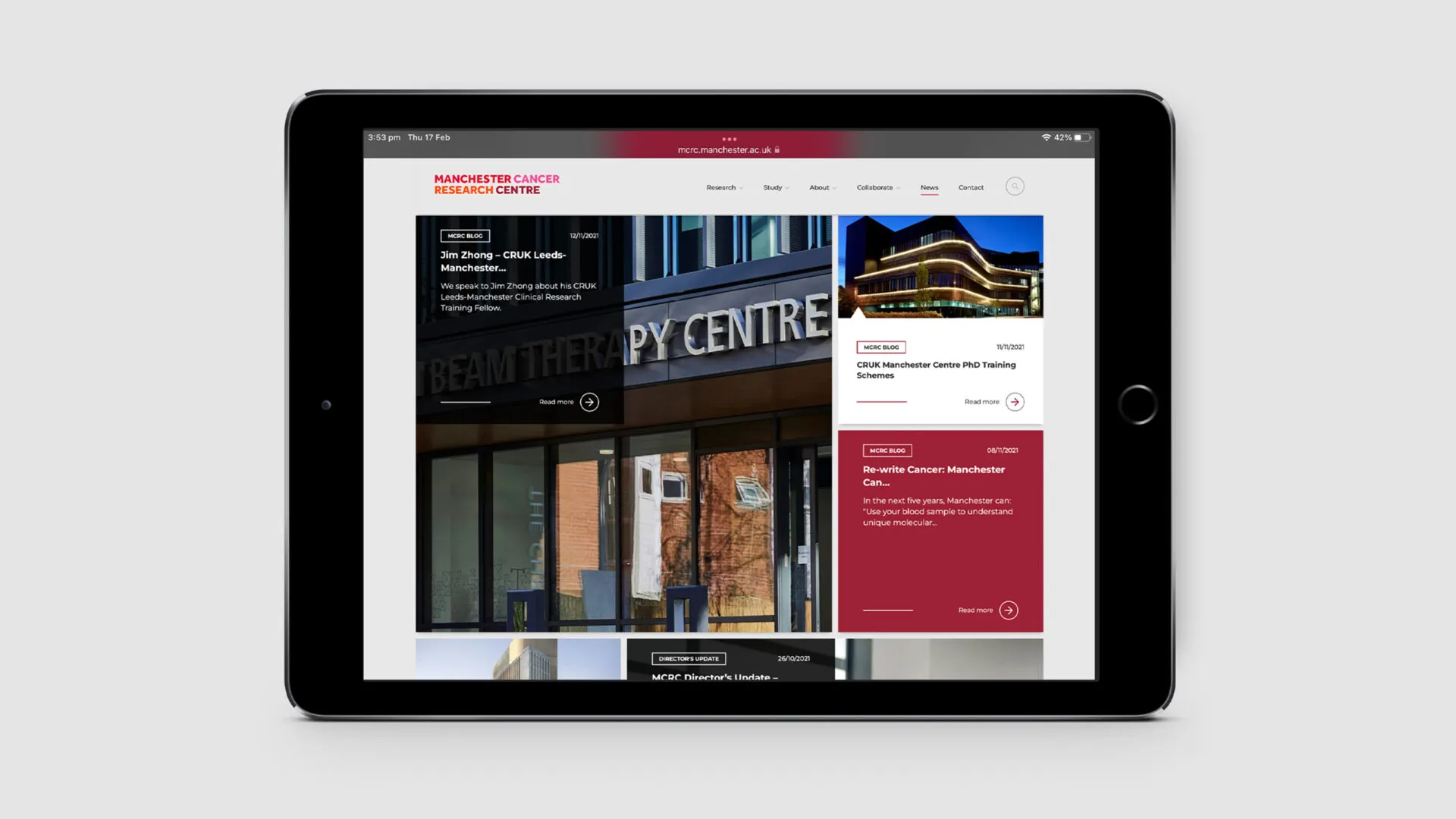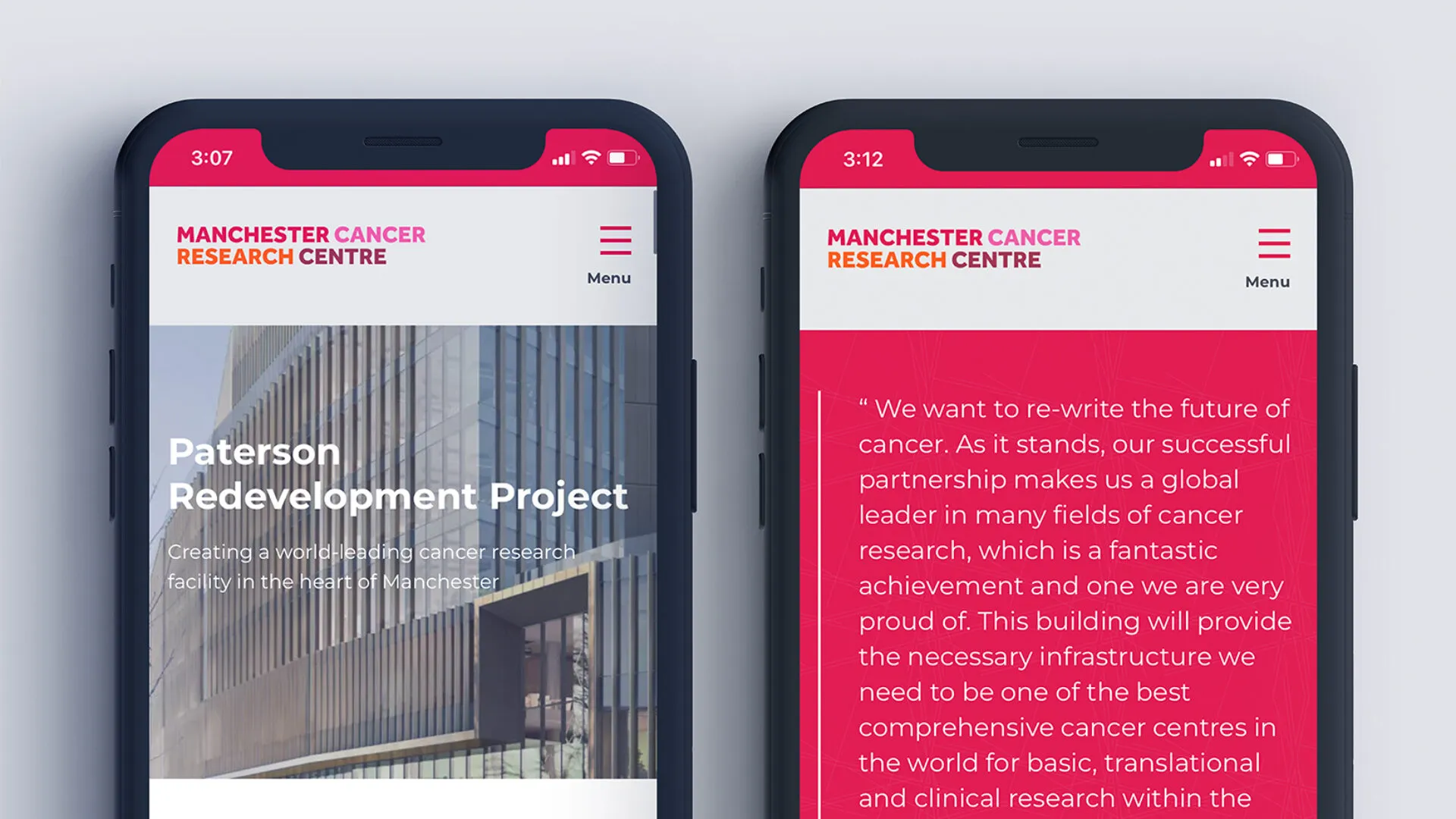MCRC
Website redesign
With a strong focus on improving the user experience, clearer routes and navigation, and refined messaging and CTAs, this website redesign helped elevate MCRC’s digital presence, bringing it in line with the organisation’s status as a world class research facility.
Building a global reputation through collaboration
The Manchester Cancer Research Centre (MCRC) was set up in 2006 by three partners: The University of Manchester, Cancer Research UK and The Christie NHS Foundation Trust. This unique collaboration brings together expertise, vision, resources and formidable individual reputations in the field of cancer research.
MCRC’s reputation across all aspects of cancer research has been driven by this collaborative and multidisciplinary approach, developing various centres of excellence to promote its offering.
Reasserting the North West’s leadership in cancer research
Whilst MCRC has remained at the forefront of this research, other specialist centres in the UK had begun to detract the focus of attention away from the North West. Our client wanted to put Manchester and the region back on the map, with the MCRC as the umbrella organisation that encapsulates all of this important life-saving work.
To achieve this goal, our client had decided to embark on a full refresh of their website design and a redevelopment with a strong focus on improving the user experience, with clearer routes and navigation, and refined messaging and calls to action. The website redesign should help elevate MCRC’s digital presence, bringing it in line with the organisation’s status as a world class research facility that will appeal to a varied internal and external audience of researchers, business leaders, healthcare professionals, patients and patient advocates.
A flexible new website that reflects MCRC’s ambition
We designed and built a bespoke, flexible CMS using the latest page builder technology, giving MCRC’s web administrators the freedom to create and publish unique layouts that fit their content, rather than forcing their content to adapt to the system.
Empowering editors with intuitive building blocks
These unique layouts can be created by choosing from a series of highly curated, mobile responsive, pre-configured modular blocks, which MCRC web administrators can combine in any number, order or configuration to suit their content and populate as needed.
Each block provides a suitable UI (User Interface) to allow the user to add content efficiently, i.e., file browser, relationship field, and RTE (Rich Text Editor) or WYSIWYG (What You See Is What You Get), systems that allow content to be edited in a form that resembles its appearance once displayed as a finished web page.
The initial set of blocks, shaped by the wireframe output, offers a wide range of flexible layout options. Built on a modular system, the website allows for phased delivery of new or updated blocks over time, helping the design stay fresh and adaptable. The page builder also supports special-purpose blocks for third-party content, making it easy to embed responsive video (YouTube or Vimeo) or integrate direct HTML and iFrame content where needed.
Navigation that scales: mobile-first, multi-level and intuitive
The primary navigation features a ‘mega menu’ on larger breakpoints and a ‘full screen accordion’ on smaller ones, with both formats designed to support up to three levels of content hierarchy.
We built a fully responsive, mobile-first templated system around five core breakpoints. Flexible, card-based templates give editors full control over content structure and presentation, including the ability to add external links, regardless of the final destination.
Lean pages, rich experience
One of the features introduced in the website redesign is lazy loading – a technique that improves performance and enhances the visual experience.
Images are first served in a low-resolution, high-blur format with minimal file size, while the high-resolution versions load asynchronously as they enter the user’s viewport. This approach reduces initial page weight, speeding up load times and contributing to better SEO. The soft blur also adds a subtle, polished visual effect as content loads.
Beyond website redesign – a platform for engagement
With increased visibility in the digital space, the new website acts as a one stop shop resource for cancer research activities in Manchester, with the latest news, research and stories from cancer researchers whilst enabling MCRC to showcase and document key collaborations with partners.
This project went beyond website redesign and improved user experience and functionality – the new website design helps promote engagement, understanding, connection and a renewed sense of community and pride amongst MCRC’s staff, key stakeholders and audience. The result is a website that informs, engages and inspires, cementing MCRC’s reputation as a world leading authority in the field of cancer research.
“The MCRC website has been one of the largest comms projects we’ve undertaken and has been beset by challenges including a global pandemic, working from home and a busy and difficult research landscape, but I honestly can’t compliment the new website enough.
This has been a mammoth undertaking for the MCRC, and it’s incredible that we’ve now crossed the finishing line. But throughout the entire project working with Parker has made the process much easier. From the excellent designs to the robust and intuitive backend of the website, it’s everything I wanted and more.
Please pass my thanks onto the rest of the team who have helped to make this launch possible. We’re incredibly impressed and look forward to seeing what we can do together in the future.”
Communications Manager – MCRC and CRUK Manchester Centre
Time for a website redesign?
…get in touch, we’d love to help.
Take a look at other website design projects
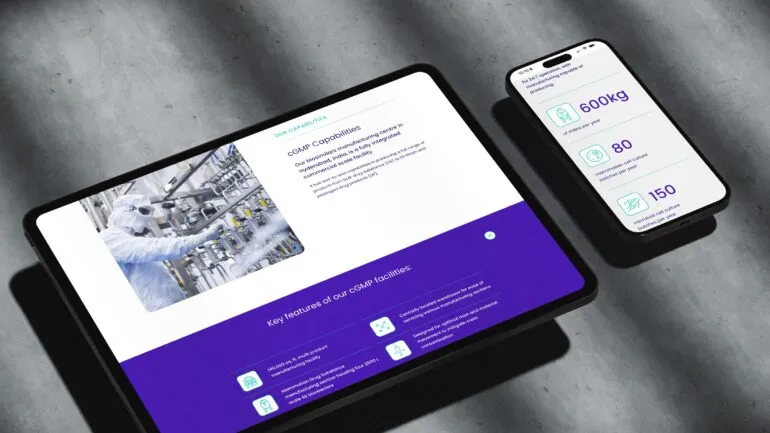
CuraTeQ
Healthcare website design

Heat Pump Life
Interactive website design
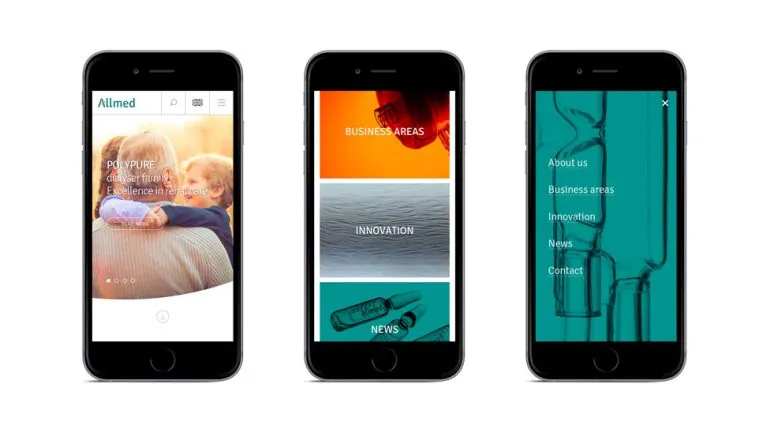
Allmed
Responsive web design
